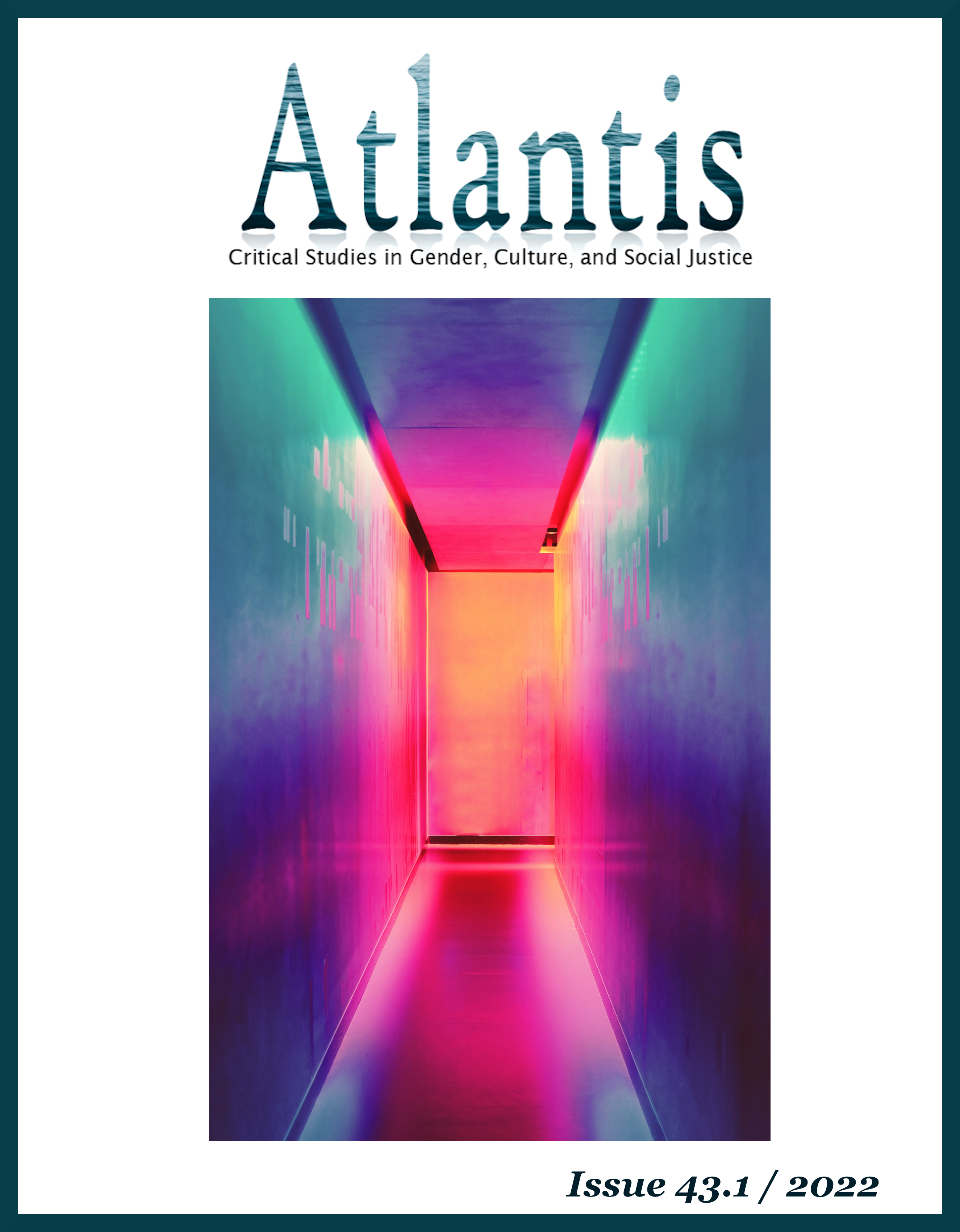"I wish my mom was here": An Autoethnographic Account of Obstetric Violence in Mexican Healthcare Services
Keywords:
abortion, autoethnography, obstetric violence, reproductiveAbstract
This article offers an account of obstetric violence in abortion procedures within the Mexican health-care system. Through autoethnography, the author narrates and analyzes personal experience to identify the social and political implications, as well as the intersections of gender and class present in state-funded abortion care. The importance of the topic stems from the emergence and strengthening of the feminist struggle to conquer reproductive rights both in Mexico and in other countries throughout Latin America. As a result of the autoethnographic writing, the article discusses the tension where decriminalization of abortion—an important goal for the feminist movement—doesn’t ensure that women can undergo this procedure in conditions free of violence, since abortion stigma might still prevail.
References
Ariza Sosa, Gladys Rocío. 2013. “Las representaciones sociales de la violencia en las relaciones de pareja en Medellín en el siglo XXI.” Revista CES Psicología 6 (1): 134-158. https://www.redalyc.org/pdf/4235/423539419009.pdf
Bedoya-Ruiz, Libia, Andrés Agudelo-Suárez, and Diego Restreopo-Ochoa. 2020. “Mujeres en embarazo, parto y posparto: una mirada desde el pensamiento feminista.” Revista Peruana de Medicina Experimental y Salud Publica 37, (1): 142-147. https://dx.doi.org/10.17843/rpmesp.2020.371.4981
Coon, Tamara. 2013. “The Transition to Nonparenthood: A Critical Feminist Autoethnographic Approach to Understanding the Abortion Experience.” Journal of Poetry Therapy 26, (3): 169-189. http://dx.doi.org/10.1080/08893675.2013.823314
Ellis, Carolyn and Arthur P. Bochner. 1991. “Telling and Performing Personal Stories: The Constraints of Choice in Abortion.” In Investigating Subjectivity: Research on Lived Experience, edited by Carolyn Ellis and Michael Flaherty, 79-101. Thousand Oaks: CA: Sage
Ellis, Carolyn, Tony E. Adams, and Arthur P. Bochner. 2010. “Autoethnography: An Overview.” Forum Qualitative Sozialforschung / Forum: Qualitative Social Research 12 (1). https://doi.org/10.17169/fqs-12.1.1589.
Grupo de Información en Reproducción Elegida (GIRE). 2021. “¿Qué es la marea verde? ¿Y el pañuelo?” Accessed October 10, 2021. https://gire.org.mx/limon/que-es-la-marea-verde-y-el-panuelo/
Grupo de Información en Reproducción Elegida (GIRE). 2018. Justicia Reproductiva. México: GIRE
Holman Jones, Stacy, Tony E. Adams, and Carolyn Ellis. 2016. “Introduction: Coming to Know Autoethnography as More than a Method.” In Handbook of Autoethnography, edited by Stacy Holman Jones, Tony E. Adams, and Carolyn Ellis, 17-47. New York: Routledge.
hooks, bell. 2000. Feminism Is For Everybody. Passionate Politics. Massachusetts: South End Press.
Kumar, Anuradha, Leila Hessini and Ellen M.H. Mitchell. 2009. “Conceptualising Abortion Stigma.” Culture, Health & Sexuality 11, (6): 625-639. https://doi.org/10.1080/13691050902842741
Metta, Marilyn. 2016. “Putting the Body on the Line. Embodied Writing and Recovery through Domestic Violence.” In Handbook of Autoethnography, edited by Stacy Holman Jones, Tony E. Adams, and Carolyn Ellis, 486-509. New York: Routledge.
Swafford, Shelby. 2020. “To be a (M)other: A Feminist Performative Autoethnography of Abortion.” Cultural Studies <-> Critical Methodologies, 20 (2): 95-103. https://doi.org/10.1177/1532708619878743
Tamayo, Juliana, Clara Restrepo, Laura Gil, and Cristina González. 2015. Obstetric Violence and Abortion. Contributions to the Debate in Colombia. Colombia: Grupo Médico por el derecho a decidir.
Women Help Women. 2017. Violencia obstétrica y aborto. Ideas sobre autodefensa para mujeres que han decidido abortar. Venezuela, Honduras, Dominican Republic, Chile: WHW
World Health Organization. 2021. “Abortion.” Last modified November 25, 2021. https://www.who.int/news-room/fact-sheets/detail/abortion
Downloads
Published
Issue
Section
License
Copyright (c) 2022 Estefanía Díaz

This work is licensed under a Creative Commons Attribution 4.0 International License.
Authors who publish with this journal agree to the following terms:
1. Authors retain copyright and grant the journal right of first publication, with the work simultaneously licensed under a Creative Commons Attribution 4.0 International License that allows others to share the work with an acknowledgement of the work's authorship and initial publication in this journal.
2. Authors are aware that articles published in Atlantis are indexed and made available through various scholarly and professional search tools, including but not limited to Erudit.
3. Authors are able to enter into separate, additional contractual arrangements for the non-exclusive distribution of the journal's published version of the work (e.g., post it to an institutional repository or publish it in a book), with an acknowledgement of its initial publication in this journal.
4. Authors are permitted and encouraged to preprint their work, that is, post their work online (e.g., in institutional repositories or on their website) prior to and during the submission process. This can lead to productive exchanges, as well as earlier and greater citation of published work. Read more on preprints here.







